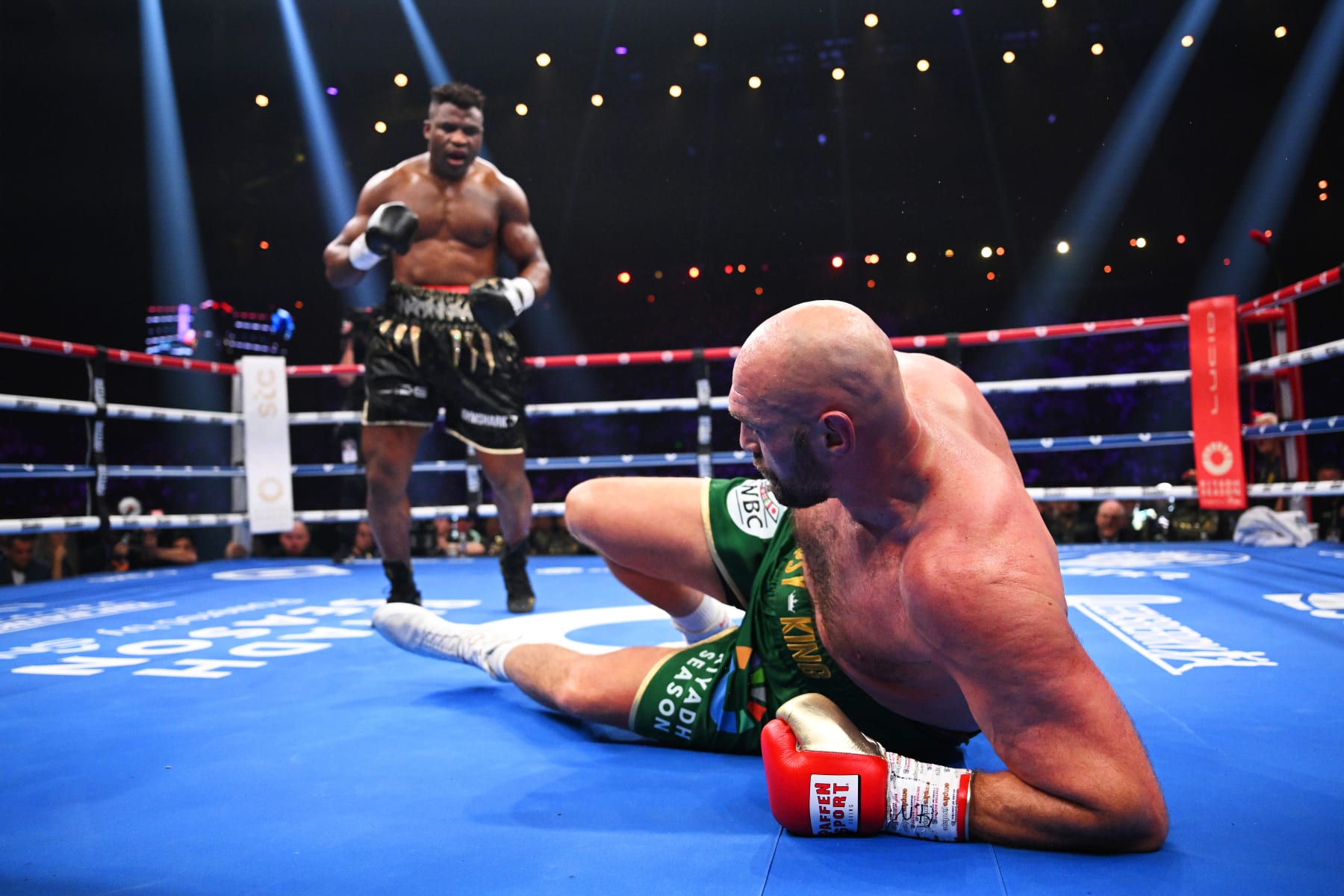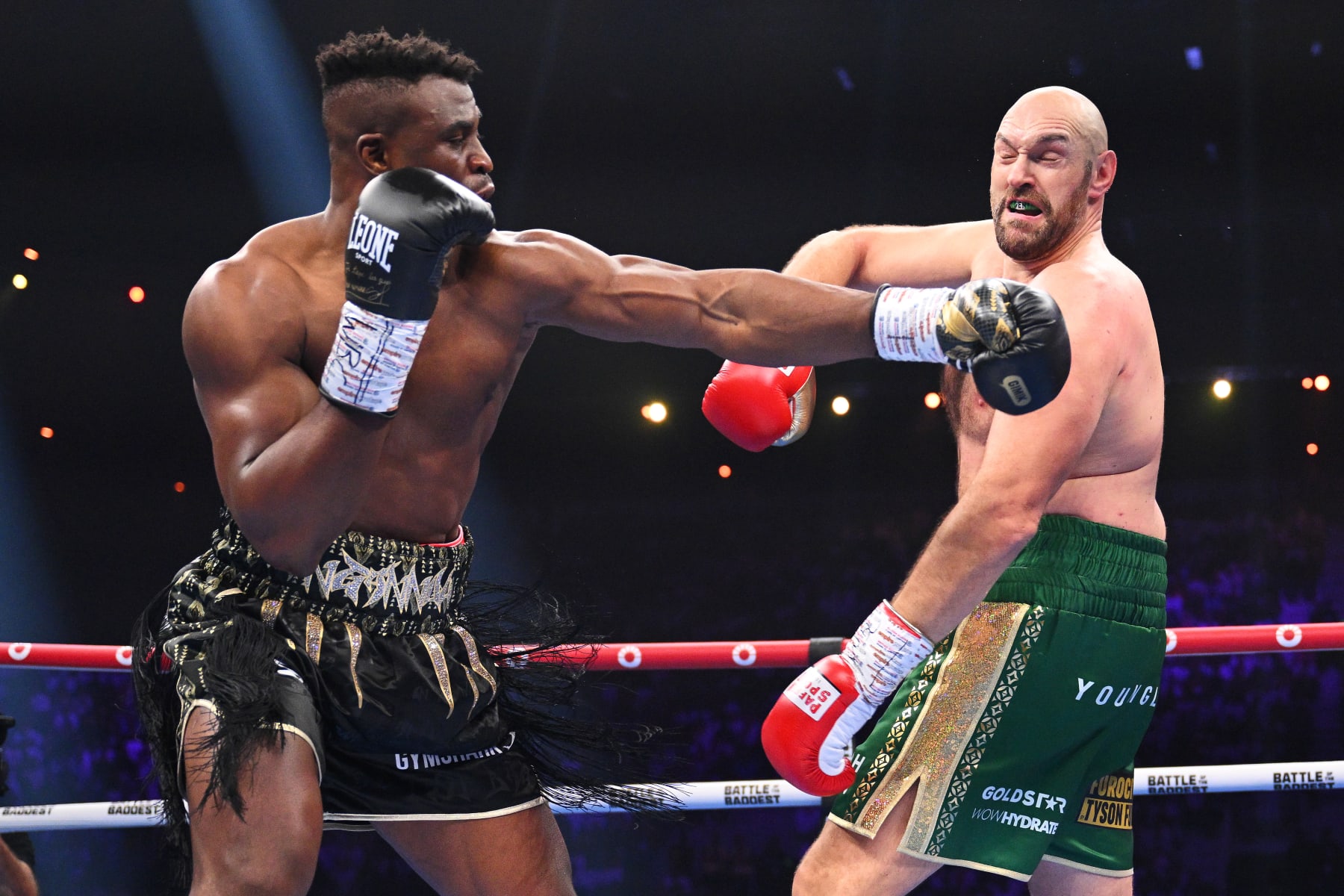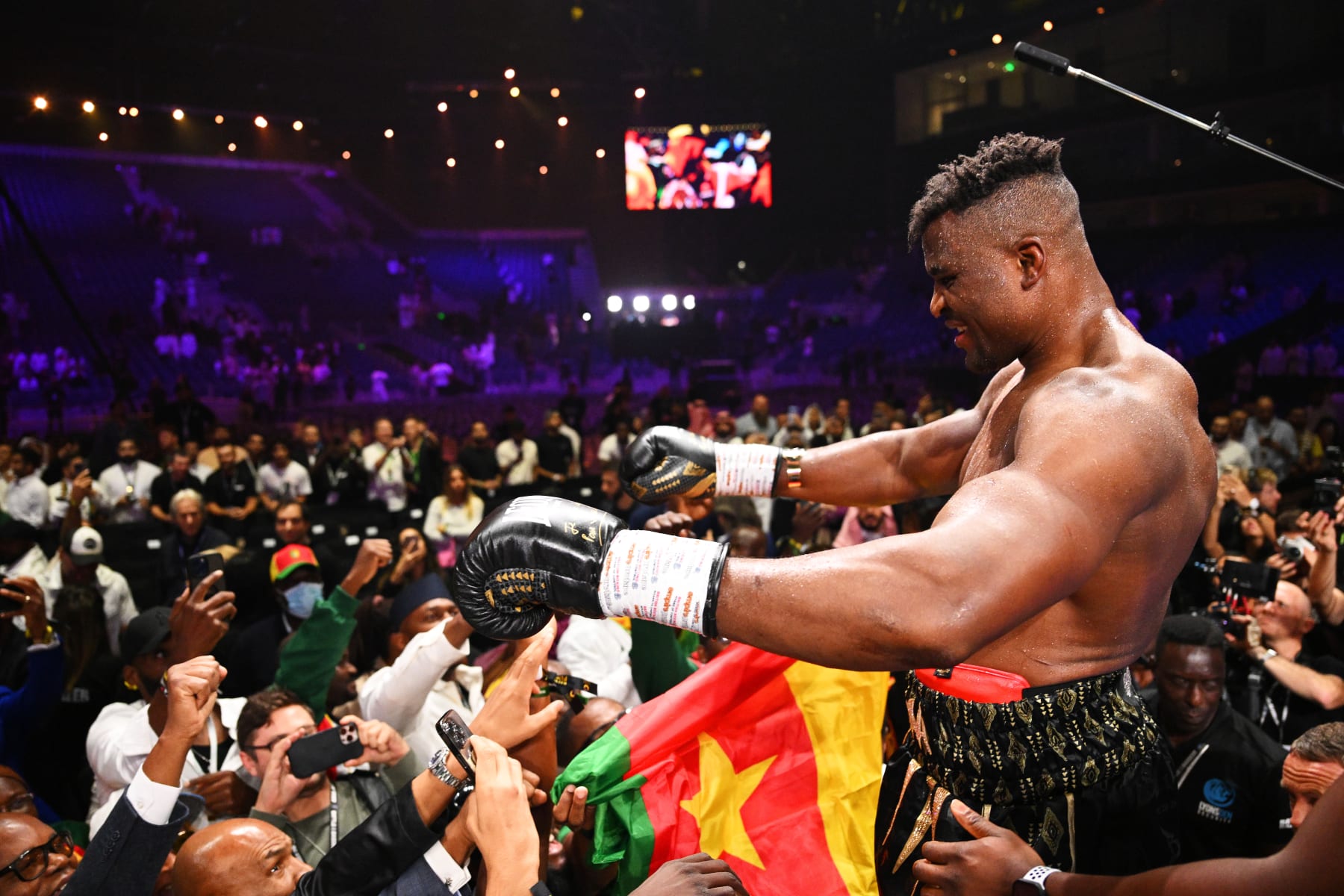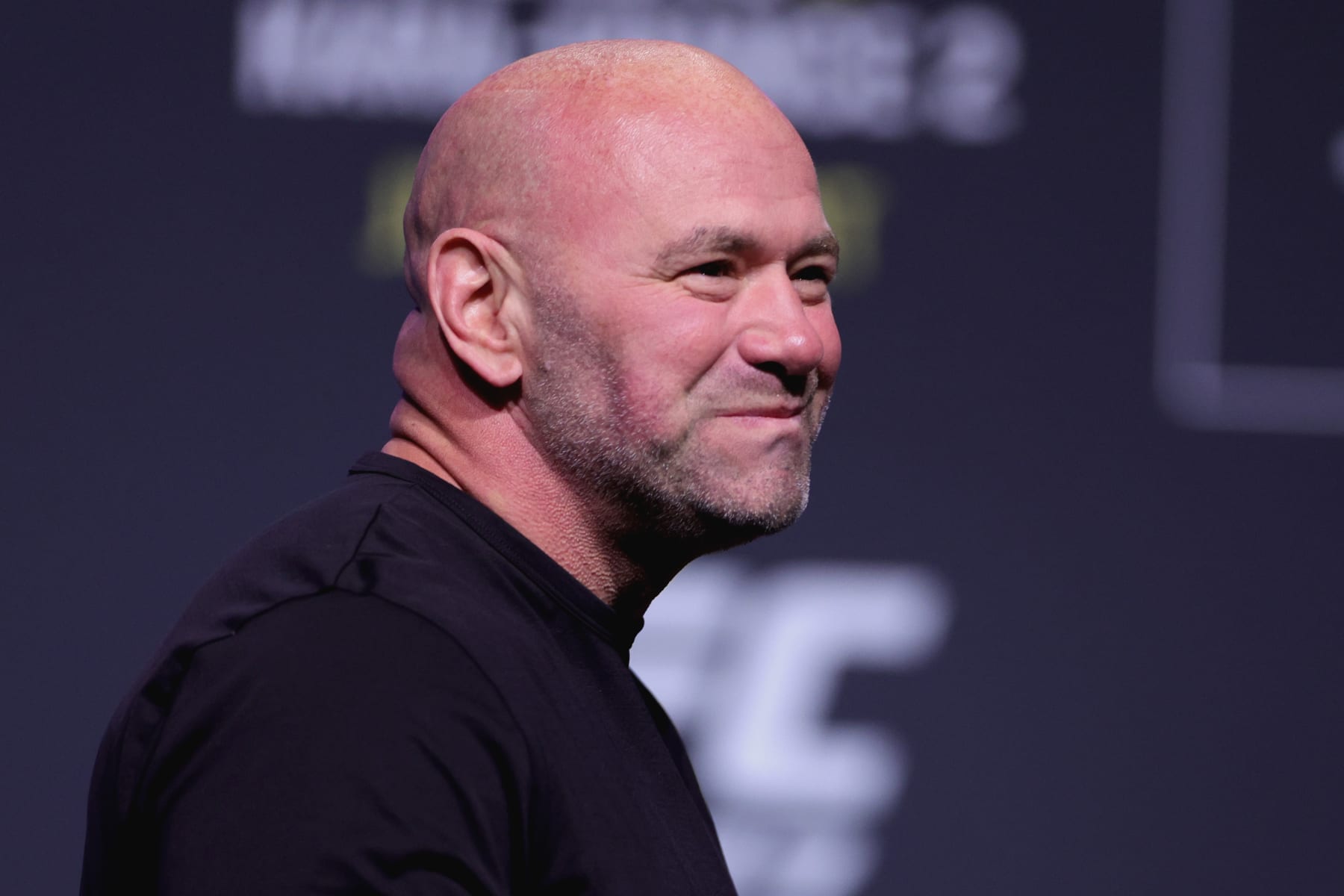Embarrassing Tyson Fury Performance Shows the True Risk in Boxing Cash Grabs
Embarrassing Tyson Fury Performance Shows the True Risk in Boxing Cash Grabs

It's hard to decide which Saturday moment was the worst for boxing.
Was it when a left hand collided with Tyson Fury's skull and sent him sprawling to the canvas in the third round?
Perhaps the late stages of the eighth, when the WBC heavyweight champ looked so physically spent that a KO loss not only seemed possible but imminent?
Or shortly after the final bell, when the tuxedoed husk of Michael Buffer paused dramatically before pronouncing Fury had escaped with a split decision over a foe who'd never laced a pair of competitive gloves?
Regardless, one thing is certain: The optics were bad.
Really bad.
So bad in fact that the spectacle prompted the B/R combat team into an impromptu huddle to discuss the crossover-bout phenomenon and the risks involved for the established boxers involved and for their sport as a whole.
Take a look at what we came up with and drop a thought of your own in the comments.
Compromising the Legacy

It's the most obvious takeaway from Saturday.
Given his standing as the unbeaten and longest-reigning heavyweight champion of the world, it was hardly surprising that Fury was an enormous favorite to win the fight and only slightly less likely to win it inside the scheduled 10-round distance.
So the mere fact that a boxing newbie like Ngannou competed with him, let alone knocked him down, busted him up, and was awarded the decision on one judge's scorecard, was stunning to say the least and devastating to say the most.
Short of a one-sided defeat of Oleksandr Usyk if and when they meet—or a quick vanquish of Ngannou if they agree to a rematch—it's difficult to imagine a time when the clip of him hitting the deck against the ex-UFC king is not going to lead Fury's highlight package.
Maybe not the mainstream equivalent of Mark Sanchez's butt fumble or Bill Buckner's through-the-legs grounder, but when it comes to Fury's boxing legacy it's close. And had just one more round swung in his foe's direction to make it an official loss, wow.
"One thing is for sure, Fury's legacy as possibly one of the greatest heavyweights of all time is gone," ex-middleweight title challenger Billy Lyell told Bleacher Report. "No one will ever consider him up there with Ali, Tyson, Holmes, Lewis."
Whenever an established fighter considers a novelty opponent from this point forward, it's a risk that's got to factor into the equation.
Cheapening the Sport

So everyone agrees it was a bad look for Fury's legacy, right?
Well, going hand in hand is what it does to the sport.
Consider once again that had judge Alan Krebs scored just one more round in Ngannou's direction, boxing's lineal heavyweight champion would have dropped a split decision to a fighter in his pro debut.
And not a guy with an Olympic pedigree like Pete Rademacher, whose name was dropped during Saturday's broadcast. For those unaware, Rademacher had won a gold medal at the 1956 Games in Sydney, Australia, before debuting a year later against then-heavyweight champ Floyd Patterson and knocking him down before succumbing by KO four rounds later.
By contrast, Ngannou had fought 20 times in the MMA environment between 2013 and 2022 but had never competed in a boxing ring, and, in fact, had been steered toward MMA in the first place by a would-be trainer who said he'd never make a living as a boxer.
And not only did he not get KO'd, high-profile watchers from around the world also took to social media suggesting Ngannou had been robbed.
Imagine if a pickup team beat the Denver Nuggets in the NBA Finals or a semi-pro squad went to OT with the Kansas City Chiefs in the Super Bowl and won.
It'd never be forgotten.
If it happens in boxing, it'll be a blemish that no makeup can erase.
Depleting the Audience

We'll say it again. Saturday's stench is going to linger for a while.
It'll follow Fury until he does something equally fragrant in the other direction.
And it'll prompt plugged noses toward the sport for the time being, too.
But there's another potential impact on fighters who had nothing to do with it.
The casual perception that crossover boxing is the new gold standard won't do any favors for the legitimate talents who have ring skills aplenty but have struggled to get audience traction on the mainstream level in the United States.
Case in point: Naoya Inoue.
The Japanese "Monster" might well be the best fighter in the world at the moment, but he's largely unknown outside of the hardcore fan set and certainly anonymous to those on the periphery these days who think boxing is ruled by the likes of Jake and Logan Paul.
The more these fights happen and the more traditional talents like Fury drop the ball when given a chance to squash outside pretenders like Ngannou, the more difficult it'll be for guys like Inoue for one—or would-be Fury foe Oleksandr Usyk for another—to convince fans they're just as much worth the pay-per-view investment.
Boosting the UFC

The Octagon was dark on Saturday night.
But somewhere, whether in a Las Vegas mansion, a Connecticut villa, or an apocalypse-proof bunker deep underground in Parts Unknown, you can bet Dana White was pleased.
Even though it was the disagreement about Ngannou's career arc that prompted White to cast his heavyweight champion aside to make the Fury fight possible in the first place, the threadbare result and the perception it creates is nothing but good news for the UFC czar.
Think about it.
Ngannou crossed over and pushed a consensus heavyweight champion to the brink. And it wasn't long ago that lesser light Nate Diaz and a middle-aged Anderson Silva climbed through the ropes and didn't exactly embarrass themselves in their own ring debuts, which makes MMA to boxing seem like a far easier course to navigate than the reverse.
Meantime, no one's holding their breath waiting for Fury to step inside a cage to issue a challenge to Ngannou.
Boxing, it seems these days, is a specialized skill.
But the UFC is the ultimate measure of all-around combat chops.
"Most significant," ex-HBO boxing blow-by-blow man Jim Lampley told Bleacher Report, "is what will be seen as evidence the transition into boxing isn't all that steep for MMAs."
